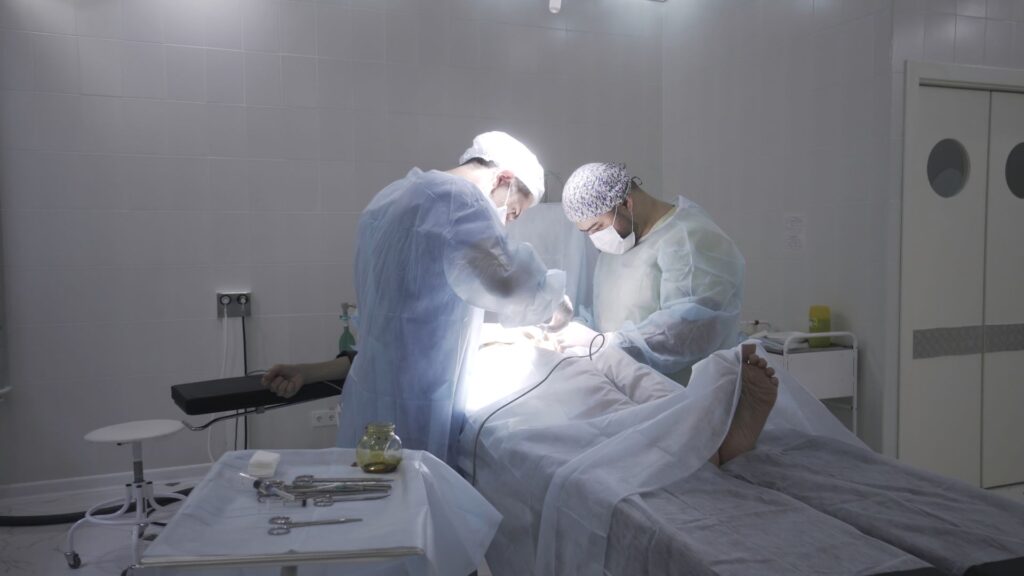
Infertility refers to the inability to conceive a child naturally after a year or more of regular, unprotected sexual intercourse. Although conceiving a child may seem to be simple and natural process but it depends on various factors for both male and female partners.
Male infertility can result from various factors like problems with sperm production, sperm motility, or sperm quality. Common causes of male infertility include hormonal imbalances, genetic disorders, infections, anatomical problems, and lifestyle factors such as smoking, excessive alcohol consumption, drug use, obesity, and stress. Some cases of infertility can be treated with medicines, hormone therapy and lifestyle modifications, some may require surgical intervention. Surgery can be an option for male infertility in certain cases where the cause of infertility is related to anatomical issues or obstructions that prevent the normal flow of sperm.

Let’s discuss some common male infertility problems requiring surgery and the procedures:
- Testicular Biopsy: This is a diagnostic surgery which involves taking a small sample of testicular tissue to examine it under a microscope. It helps in diagnosing conditions such as obstructive azoospermia (absence of sperm in the ejaculate due to a blockage) or non-obstructive azoospermia (absence of sperm production) to know the cause of male infertility.
- Varicocelectomy for Varicocele: This is a condition characterized by the enlargement of veins within the scrotum. Varicoceles can impair sperm production and quality due to increased testicular temperature and blood flow abnormalities. Surgical procedures such as varicocelectomy may be performed to repair the varicocele, potentially improving sperm parameters and fertility.
- Sperm Retrieval Procedures: for Obstructive Azoospermia: In some cases, sperm production is normal, but infertility may result from blockages or obstructions in the male reproductive tract, preventing the release of sperm. Surgical techniques such as percutaneous epididymal sperm aspiration (PESA), testicular sperm extraction (TESE), or microsurgical epididymal sperm aspiration (MESA) can be performed to retrieve sperm directly from the testes or epididymis (a coiled tube attached to the testicle where sperm mature) or for use in assisted reproductive techniques like in vitro fertilization (IVF) or intracytoplasmic sperm injection (ICSI). MESA is performed to retrieve sperm from the epididymis. It is often used in cases of obstructive azoospermia.
Similar to MESA, PESA involves the aspiration of sperm from the epididymis. However, it is less invasive and is often performed using a needle inserted through the scrotum. TESE involves the removal of a small piece of testicular tissue to retrieve sperm directly from the testicle. It is commonly used in cases of non-obstructive azoospermia.
- Surgery for Ejaculatory Duct Obstruction: Ejaculatory duct obstruction can hinder the release of semen during ejaculation, leading to male infertility. Surgical procedures like transurethral resection of the ejaculatory ducts (TURED) or seminal vesiculoscopy may be performed to address this issue, potentially restoring fertility.
- Orchidopexy for Undescended Testicles (Cryptorchidism): Testicles that have not descended into the scrotum are at risk of infertility due to higher temperatures inside the body. Surgery, called orchidopexy, is typically performed to bring the testicle down into the scrotum, which can improve sperm production and quality.
- Vasectomy reversal (Vasovasostomy): This procedure reconnects the vas deferens, the tubes that were cut during a vasectomy, to allow sperm to be present in the ejaculate again.
- Epididymovasostomy: In cases where a vasectomy reversal is not possible due to blockage in the epididymis (a coiled tube where sperm mature), this procedure is performed to bypass the blockage and restore sperm flow.
- Varied Urological Conditions: Other urological conditions such as congenital abnormalities, blockages in the vas deferens, or prior surgeries affecting reproductive organs can also contribute to male infertility. Surgical interventions tailored to the specific underlying condition may be necessary to improve fertility outcomes.
- Surgery for Testicular Torsion: Testicular torsion involves the twisting of the spermatic cord, cutting off blood supply to the testicle. This condition constitutes a surgical emergency, and prompt surgical intervention is essential to salvage the affected testicle and preserve fertility.

If surgery is the way to treat your infertility, it is important to understand what is in store for you. Talk to your doctor in detail about what all to expect. Considerations for surgery for male infertility include:
- Success Rates: It is essential to discuss the success rates of the surgical procedure with a qualified urologist or reproductive specialist. The success of these procedures varies depending on the underlying cause of infertility, the skill of the surgeon, and individual factors such as age and overall health.
- Risks and Complications: Like any surgical procedure, male infertility surgery carries risks and potential complications. These may include infection, bleeding, damage to surrounding tissues, and anaesthesia-related risks. Patients should be informed about these risks before undergoing surgery.
- Recovery time: The recovery time following male infertility surgery can vary depending on the type and complexity of the procedure. Patients should be aware of the expected recovery period and any restrictions on activities during this time.
- Cost and insurance coverage: It is important to consider the cost of surgery and whether it is covered by insurance. Some procedures may not be covered, or there may be limitations on coverage depending on the individual’s insurance plan.
- Post-operative Care: Following surgery, patients may require a period of recovery and may need to avoid strenuous activities for a certain period. It is essential to follow post-operative instructions provided by the healthcare provider to optimize recovery and outcomes.
- Long-term implications: Patients must know about the potential long-term implications of male infertility surgery, including the likelihood of success in achieving pregnancy, the need for additional treatments, and the possibility of recurrence of infertility.
- Emotional support: Infertility surgery can be emotionally challenging for individuals and couples. It is essential that you have emotional support of partner, family, and friends. Counselling is also important both before and after surgery to address any concerns or anxieties related to fertility issues.
- Alternative Options: In some cases, alternative options such as assisted reproductive technologies (ART), including IVF with intracytoplasmic sperm injection (ICSI), may be considered if surgery is not feasible or unsuccessful.
Before undergoing any surgical procedure for male infertility, individuals should undergo a thorough evaluation by a reproductive urologist or infertility specialist to determine the most appropriate treatment approach based on their specific circumstances and preferences.
